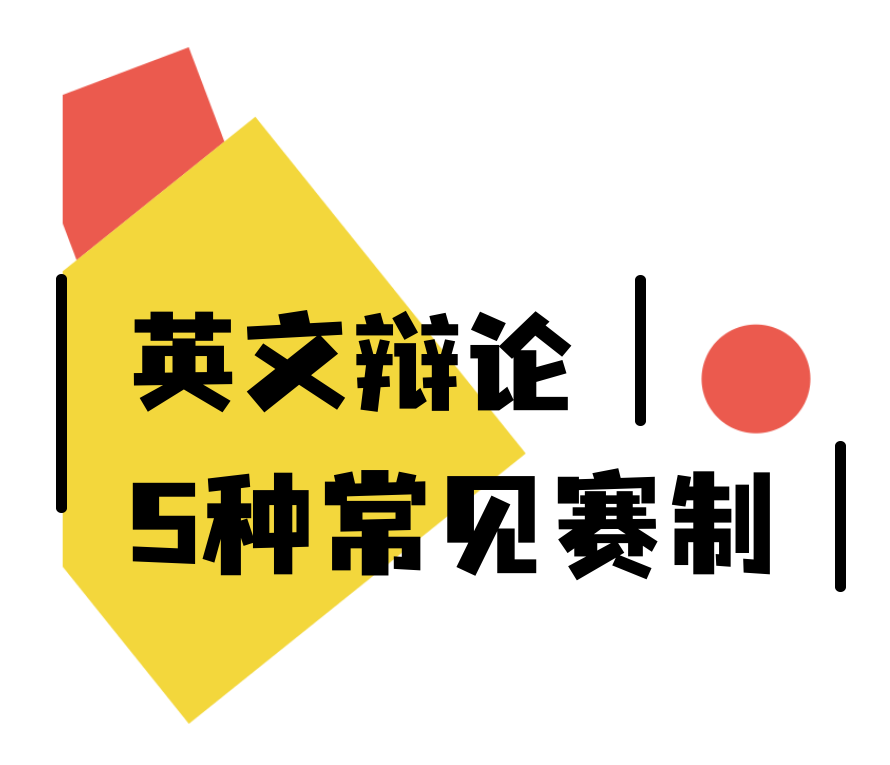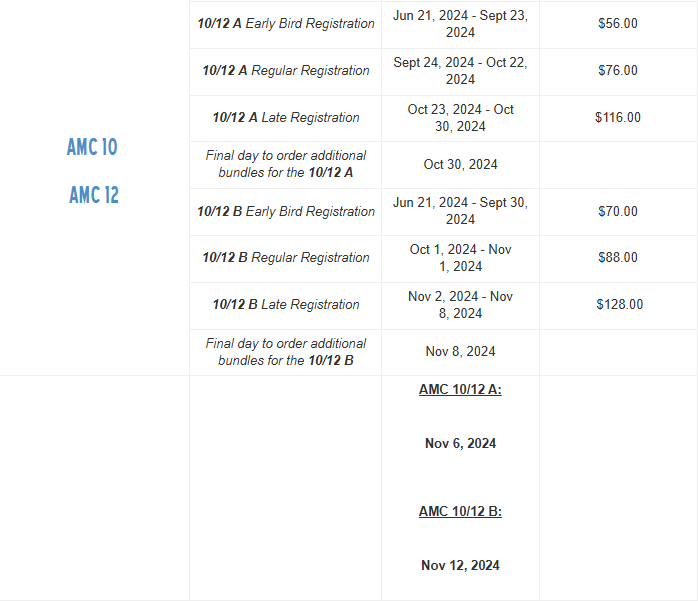How to Judge Policy Debate
政策辩的正确打开方式
01前言
作为一个身在北美的华语辩论组织,我们的辩论文化和英式辩论有、着不可忽视历史与连接!
如何促进文化交流,取长补短,是我们一直希望达成的目标和理想~北美华语辩论协会的荣誉评委制度,就是借鉴了英式辩论的评委晋级制度才得以成功的!
而对于政策辩来说,作为先河,英式议会制的辩论有着很多值得我们学习和借鉴的地方~
今天,我们请来了多伦多大学Hart House辩论社的外国朋友,和我们一起分享一下,英式辩论中,政策辩的正确打开方式!让我们从评委的视角来体验一下,英式政策辩是怎么评出胜负的!
02、Hart House 辩论社介绍
创立于1919年,Hart House 辩论社是加拿大最古老和最具声誉的辩论社之一。这个社团给予了多伦多大学的学子一个可以提升演讲技巧和探索新角度,新态度,和新想法的空间。
近年来,Hart House辩论社依旧斩获了加拿大和北美辩论赛的冠军,包括英式议会制,以及加拿大议会制的辩论赛。在2023年的世界大学辩论赛(WUDC)上,我们的辩手取得了八强的好成绩,以及我们的全部三名评委都晋级到了八强赛的评委团中。同时,我们的辩手还晋级到了牛津大学辩论赛的决赛,以及在世界大学辩论赛(WUDC)上斩获个人分数前10的好成绩!
03、正文译文
如何解读一场政策辩
政策辩题通常会写成“This House Would [do X]” 的形式。正方需要支持政府制定X政策。这种辩题是完全规范型的;双方不需要证明这一项政策有没有可能在事实中被政府制定。反方可以选择支持现状,也可以选择提出另外一个相反的政策. 这一场辩论的判决应针对正方所提出的政策的具体内容是否应被执行来判断,而不是单纯的去评判其背后所蕴含的理念是否是好的。举个例子,例如辩题是“THW ban cigarettes”(本议院会禁烟),那么反方是可以同意吸烟是有害的,但反对正方所提出的戒烟政策。
在辩论时,我们应该假设具体的政策会以正方所提出的方式实施。但是正方不能假定所有的人会自动支持或者遵从正方提出的政策,就算政策真的可以按照他们的设想的那样被实施。
视角:一个普通选民的视角
在评判政策辩论时,评委们应该以一个拥有普通智商的选民的视角来看待这场辩论。一个拥有普通智商的选民会对世界有广泛的,但是并不深刻的了解(假定他们会看报纸的头条)。他们会对世界,政治和实事新闻有一定的认知(例如,叙利亚是一个在中东的国家)。但他们不会自带国家背景知识或者任何专业知识。
所以,他们会知道各个国家对新冠病毒的反应是不一样的,(施行强制隔离的方案 vs 不施行强制隔离的方案)但是他们不会知道每一个国家到底采取了什么样的措施。但于此同时,作为一个拥有普通智商的选民,评委都应该可以通过接受和分析本场听到的辩论内容,来理解被充分解释过的,任何复杂的概念。
判断:评估论点/论证的好坏
一个论点说服力的核心是辩手提供的对其真实性和重要性的阐述(理性分析),以及他对这个论点阐释的清晰度和修辞力(叙事风格)。 一个论点需要同时有分析性与风格,两者不能分开看待(一个好的论点不可能只有好的风格,但没有任何的理性分析)。
评委们应该以论点的证成度来判断其说服力,也就是它的逻辑是否完整,合理且前提真实可信。
在证明一个论点时,辩手们需要提供机理(为什么一个持方/主张/论点会如他们所讲的导致他们所说的结果)和提供对其结果影响的阐述(为什么其结果会导致正面或负面的影响,以及,为什么其结果是重要的,值得被我们关注的)。
这些论点的构成部分的质量比其数量更加重要(也就是,少量,机理明确的论点要好于大量没有解释清楚的论点)。两方都需要证明他们机理和他们机理的影响的合理性和规模。而对方可以选择反驳其一个论点的一个组成部分,例如,机理,影响,或者其他前提。但反驳掉了一个论点,不一定等于获得了比赛胜利。(因为残留的论点可能依然可以证成持方)
评委需要尽可能减少心证,就算听上去很荒谬的论证,在没有被反驳的前提下,都不应该被评委所忽视 - 虽然这样的论点应该说服力不强。
判断:胜利的队伍
一个队伍的胜利条件是,其说服了评委他们成功的证明了,他们的持方需要他们证明的内容。在政策辩里,队伍需要证明他们的政策,带来了独特的利好,或者对方的政策带来了独特的坏处。
仅仅是证明了自己的持方有一定的利好是不够的,队伍必须和对面进行比较(例如,证明己方的影响更大,更深远,或者更高级*)。所以,这代表,一个队伍不能通过自己做的某一件独立的事情而获得胜利,例如,仅仅是立论好,或者仅仅是反驳好。评委需要结合队伍给出的明确论证,反驳,和比较来给出判决。
在有可能的情况下,评委需要按照队伍给出的判准进行判决(例如:队伍给出判准 - 受益人数的多少是最重要的)只要队伍可以证明其判准是适用于这个辩论的(以及对方不能证明其判准不合适,或者,不能提供另外一个同样合理/适用的判准)。判准在整场比赛中,都可以被双方争夺/辩论。
如果情况不允许,(例如:队伍没有明确的判准)评委可以通过队伍的论证来推断其判准(例如:如果一个队伍认为他们的政策的影响力很大是因为其能够解决现在最大的问题,而对手没有证明这个逻辑有问题,则解决当下问题可以被认定是其判准)。但是属于特殊情况,正常来讲,评委应该避免过度解读辩手发言(例如:脑补前提,脑补论证,等)。评委不应该用自己的心证来作为比赛的判准。
点评:常见问题
1)笼统的概括论点,但不给出任何具体的场上细节
虽然评委可以说,他认为一个论点整体很不错,但是他必须明确的指出具体哪一个场上细节比较好(例如:具体的一段论证/分析/论据)来辅助他的点评。
2)带入个人知识
评委不应该以自身的专业知识作为场上论点的说服力的评判(例如:经济学硕士的评委不应该用自己对经济学的理解来反对一个场上观点,因为一个普通智商的选民不会具备这样的知识)。
同样,评委不应该在评议的时候带入自己对本场比赛的预期来进行判决(例如:一个队伍不应该因为说了“这个持方下最好的/最正确”的论点而额外得分。
3)只看形式不看内容
评委不应该以辩手的角色带入,发言时间,发言架构,等因素进行评议,除非这极大程度影响到了辩手发言内容的质量。一个简短的发言有可能存在缺少反驳等情况,但是不应该因为没有用掉所有的时间而直接扣分。如果其包含了足够的反驳,依然有机会赢得比赛。
引用
以上内容很多来自世界大学辩论赛,辩论和评议指南World Universities Debating Championships Debating and Judging Manual
04、结语
在第六届北美国际华语辩论赛中,我们会继续尝试融入一定数量的政策辩场次,借鉴英式辩论的评议方式进行评议!
敬请期待!
05、附正文原文
Understanding Policy Debates
Policy motions take the form “This House Would [do X]” where Government argues that they should be enacting policy X. These debates are purely normative -- teams do not need to discuss whether the policy is likely to be enacted in the real world or whether policy X is status quo. Opposition teams may choose to defend the status quo or propose a counter-proposition. The question of the debate is whether or not the policy should be enacted in the manner that the Government team has set out, not just about whether the idea behind the policy is good. For example, for "THW ban cigarettes," the opposition team can agree that cigarettes are bad, but oppose the policy of banning cigarettes altogether.
It is assumed that the policy will be implemented in the manner that the Government team sets up (also known as fiat). However, Government cannot control reactions to their policy and cannot assume that everyone will behave in a compliant manner once the policy is passed.
The Ordinary Intelligent Voter
Judges should take the perspective of a hypothetical "ordinary intelligent voter" who has broad, but not necessarily deep, knowledge of the world (i.e., they read the headlines of a major international newspaper). This person would be aware of basic facts about the world and about major current events (e.g.: “Syria is in the Middle East”). However, they do not have an ethnic or national background, nor do theyhave expertise in any particular subject. Thus, they know that countries haddifferent models of response to COVID-19 (deprioritizing the economy and implementing lockdowns vs. keeping the economy open and relying on individual social distancing), but they do not know the specifics of individual models each country has implemented. The average intelligent voter is fully capable of logically following and analyzing a debate and understanding complex concepts when explained.
Evaluating Arguments
The persuasiveness of an argument is rooted in the plausible reasons that are offered to show that it is true and important (analysis), and the clarity and rhetorical power with which these reasons are explained (style). Analysis and style are not separate criteria on which an argument is assessed (i.e.: it is not possible for an argument to be persuasive merely because it was stylish).
Judges should evaluate the persuasiveness of an argument based on its soundness, that is, whether it is logically coherent and plausible. In order to prove a claim, a team needs to provide mechanisms (steps to show how the motion leads to the outcome) and impact (why the outcome is good or bad, why we ought to care about the outcome). The quality of these components is more important than quantity (i.e.: fewer, more likely mechanisms are more valuable than many, poorly explained mechanisms). Teams need to prove the plausibility and scale of both their mechanisms and their impacts. Sufficient refutation from opposing teams will target and disprove these aspects. Refutation may defeat specific mechanisms, impacts, or other premises while not necessarily defeating the entire argument as a consequence (i.e.: if one mechanism is successfully refuted but another sound explanation is left, the claim may still stand).
Judges must exercise the minimum of personal evaluation, and even seriously implausible arguments cannot be disregarded entirely by the judge if they haven’t been rebutted – though they may have little persuasive value.
Determining Winning Teams
A team wins a debate by being persuasive with respect to the burdens their side of the debate is attempting to prove. For policy motions, a team needs to successfully prove that the policy uniquely leads to positive or negative outcomes relative to theother side. It is not enough for a team to prove favorable outcomes on their side, they must be comparably more compelling (i.e.: have a greater impact in terms of magnitude or level of change). Crucially, this means that teams cannot win or lose debates for isolated things they did, like setting up the debate well or contradicting another team on their side. Judges should consider constructive argumentation,
rebuttal, and explicit weighing that was presented in the debate.
When possible, judges should view the debate according to the weighing metrics provided by the teams in the debate (e.g.: teams explain that the quantity of people benefiting from the policy is the most important consideration) insofar as they are successfully applied in the debate (i.e.: other teams fail to disprove the weighing metric or provide an equally valid alternative). Weighing metrics must be argued and can be disputed by teams throughout the round. Judges should defer to metrics given by debaters. If this is not possible, judges can use implicit weighing metrics embedded in teams' analysis (e.g.: if a team argues their impact is important because it solves the biggest problem and other teams fail to disprove the logic, then resolving an issue can be used as a weighing metric). This is highly contextual and judges should avoid being overly interventionist (i.e.: crediting unspoken assumptions, inserting analysis to fill in arguments, etc.). Judges should not apply their own preferred criteria to adjudicate the round.
Common Errors
1) Using generalities without referencing specific
details of the round Although it is fine to summarize a decision by saying an argument was generally persuasive, judges must be able to identify details (i.e.: specific lines of analysis) to support that decision.
2) Bringing in external knowledge
Judges should not evaluate the persuasiveness of an argument based on prior, specialized knowledge (e.g.: a master's level understanding of economics should not be used to disprove a claim that is logically sound to the ordinary intelligent voter). Judges also should not adjudicate based on how they think the round should have gone (e.g.: teams should not be penalized for running the "correct" or "best" argument for their side).
3)Judging format rather than content
Judges should not evaluate a team's position based on role fulfillment, length of speaking time, or speech organization unless these components impacted the quality of the contents of a speaker's speech. A short speech may be disadvantageous if it lacks refutation to a persuasive opposing argument, but there are no "automatic fourths" for failing to fill time. If a shorter speech contains sufficient content to refute the opposing case, it can win the debate.













